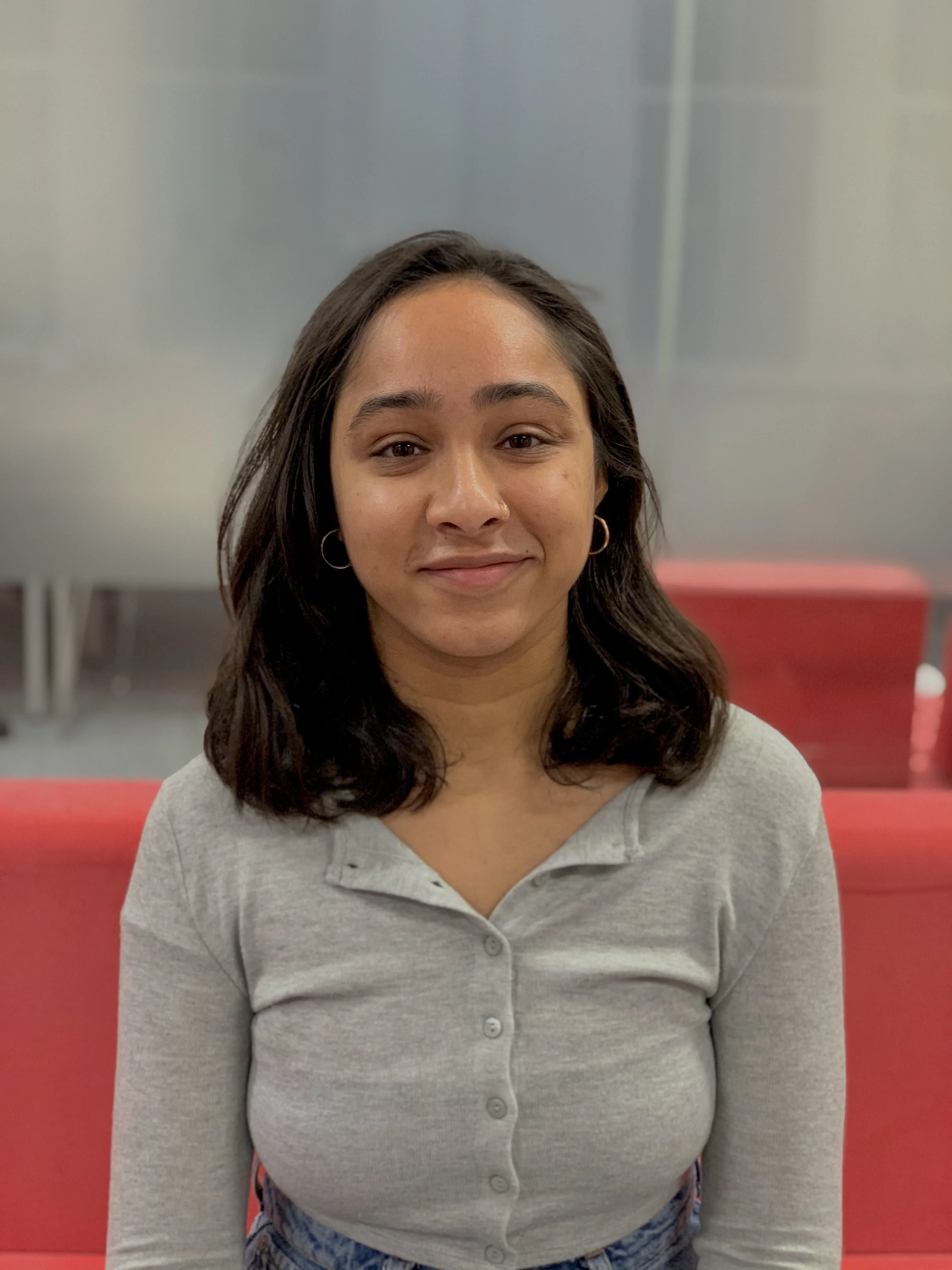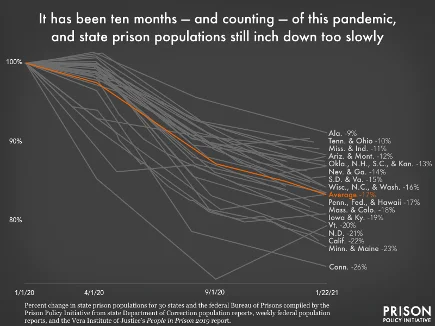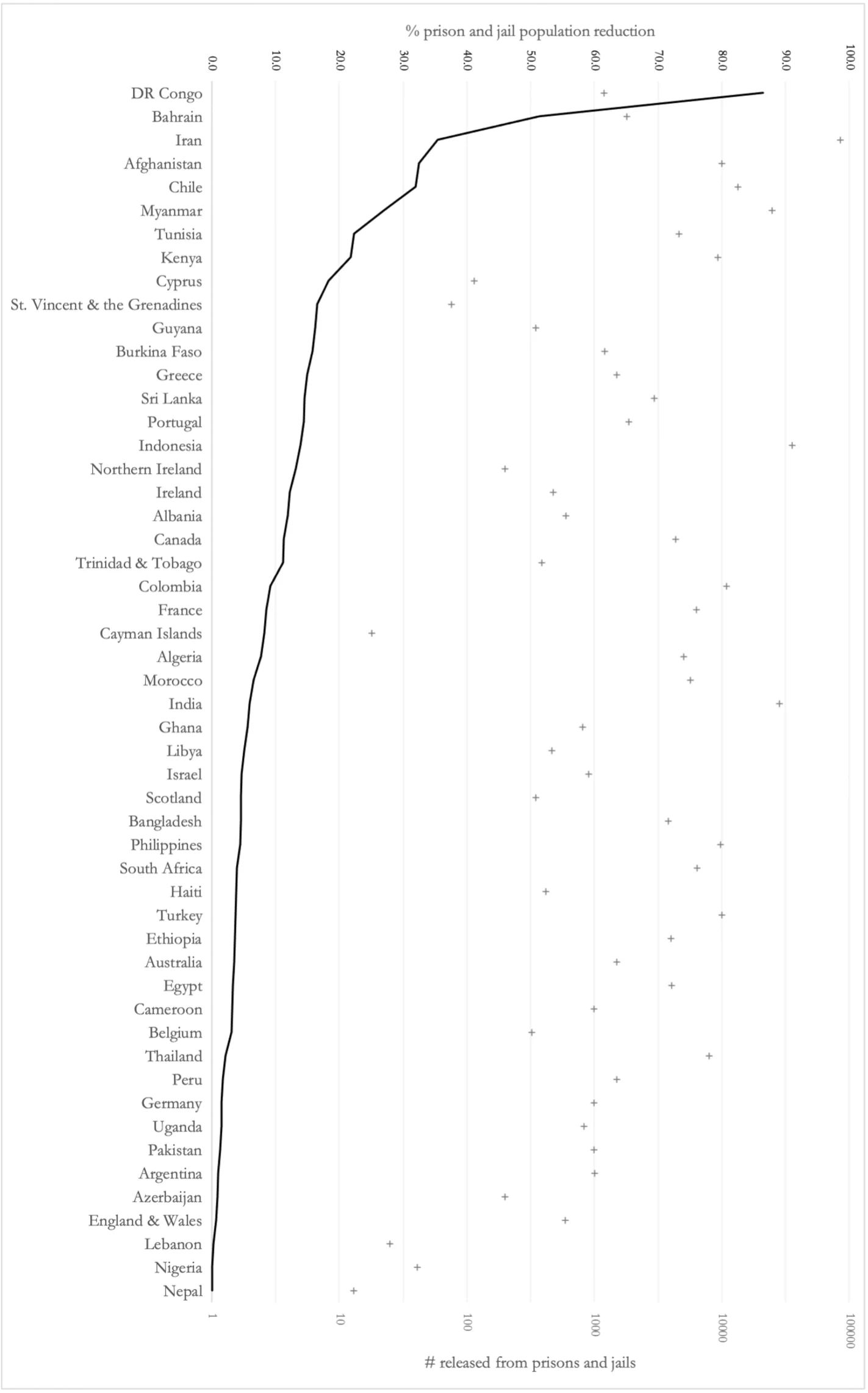The acceleration of prison reform in the age of COVID-19
Faculty: Assistant Professor, Dr Johann Koehler, Department of Social Policy
Phelan US Centre Research Assistant: Hawa Patel, Department of International History

Author
Hawa Patel
Department of International History
At the end of the programme, I was able to present a paper to an academic conference, which would have been completely unthinkable without the help of Dr Koehler. His help has been immense, and I will be forever grateful for the opportunities and wisdom he has imparted on me throughout my time being an RA for him.
Research
The United States has a long and troubling history regarding mass incarceration. Abolition movements have co-existed adjacent to the staggering rise in prison population, calling for the mass release of those behind bars on the premise that the face of imprisonment as embodied in the US is inherently inhumane. These calls for abolition have strengthened over time and are particularly prominent in certain circles – especially in criminal justice scholarship – yet had failed to make a permanent mark on policymaking. That was until COVID-19. Dr Johann Koehler’s work sought to understand this shift.
Dr Koehler made me aware very early on in my research assistant position that research often evolves and takes on many different appearances; the possibility that months of work could very well possibly be distilled into a few short lines, or even entirely omitted, from the final product is a very real one. That is the fundamental nature of research. His words were prescient.
The mitigation of releases from the carceral system shows how deeply seated imprisonment is as a response to societal issues. Policymakers, when faced with the terror of a life-threatening viral contagion wreaking havoc inside prison walls, still took strides to avoid the only viable solution – releasing prisoners (see Figure 1). My research at the start sought to investigate how states were circumnavigating prison releases through other methods; these varied from population redistribution from affected prisons and jails to other carceral facilities, to the recreation of spatial dynamics (the implementation of social distancing measures), to even building new facilities in situ. Relying on the UCLA Behind Bars Project data, I mapped the reasons policymakers - ranging from governors to state Department of Corrections - and facility spokespersons gave to avoid releases. After a month of mapping this data, Johann and I decided to delve our focus onto six states that varied geographically as well as politically, and how well the state was combatting COVID-19 in its entirety. We chose to centre our attention on Michigan, Wisconsin, California, Washington, New York, and Maryland.
Figure 1 -

Examining these six states, we sought to find patterns as to why New York and Maryland were combatting the disease inside prison walls far better than Michigan and Wisconsin. At the same time, Dr Chase Burton of Leiden University joined us in our efforts. Contending functional, cultural, and structural reasons, the three of us failed to find any comprehensible patterns in the data, and our research - that had to that point focused solely on the US - came to a sudden standstill. This was when we decided to expand our research globally.
The next phase of my research was to examine the World Prison Brief and to create an expansive spreadsheet detailing individual nations and the number of prison releases from each. Whilst I compiled the dataset, Dr Koehler and Dr Burton worked on the abstract of our paper we were due to submit in late May to the Law and Society Association (LSA). I had little knowledge on comparative penology, and around this time I sought Dr Koehler and Dr Burton’s help to further my understanding. I read the "The Long Struggle: the Agonistic Perspective on Penal Development" and excerpts of Breaking the Pendulum by Goodman et al - alongside Dr Koehler's response article to Breaking the Pendulum detailing his position as ‘penal antagonism.’ Penal antagonism would later become a core theme of the paper we would present at the LSA titled ‘Taking Unthinkable Penal Reform Seriously.’
Perhaps the most difficult aspect of the entire process was how to process the penology into a distinct rubric that would be easy for readers to follow. Attempting to locate dimensions of variations within such a vast array of data was difficult on several levels, and it only once we contended with condemnation as a variation that our draft really started to emerge. See Figure 2 for the data we compiled on the international variation in decarceration in response to COVID-19.
Figure 2 -

Dr Koehler, Dr Burton, and I presented our paper at the LSA on the 28th of May 2021 on a panel chaired my Malcolm Feely. This was my first ever presentation at an academic conference and seeing months of our hard work culminating into a first draft was incredibly exciting. Whilst my time at the Phelan US Centre has sadly come to an end, Dr Koehler, Dr Burton, and I have discussed carrying our work on further, which we hope to do.
Personal Reflections
My research position introduced me to Dr Koehler and, by extension, Dr Burton, who have both helped nurture my interest in the field of criminal justice but have also imparted many words of wisdom about academia, success, and rejection to me which have stayed close to me and will continue to do so.